Colleges that offer free tuition for low income students can help make higher education opportunities more affordable.

There are several ways students can seek financial assistance to help reduce the cost of attendance. This may include financial aid, scholarships, or attending colleges with free tuition for low-income students.
Editorial Listing ShortCode:
Exploring this comprehensive guide on how to study for free can help you get a better understanding of your options to attend college for free or at a lower cost.
Colleges That Offer Free Tuition for Low Income Students
College can get pretty expensive between the cost of tuition and other expenses, such as housing and textbook fees. The cost of college can be brought down significantly through a number of programs and financial aid opportunities that might be available to you.
These are some various options that may be able to lower the cost of your education:
- Demonstrated Financial Need
- Merit Scholarships
- Work Programs
- Military Schools
- Community Colleges
- Trade Schools
You may be able to demonstrate financial need or apply for merit scholarships that will allow you to study for free. There are several programs and colleges with free tuition options that can help you further your education without it being too costly.
Demonstrated Financial Need

Demonstrated financial need refers to the difference between a prospective student’s cost of attendance (COA) and their expected family contribution (EFC).
For example, if a student’s COA is higher than their EFC, they may prove demonstrated financial need. If their EFC is higher than their COA, financial need isn’t demonstrated. There are other factors that play a role in determining demonstrated financial need. This may include how many family members one has or if anyone else in the family is also attending college.
Editorial Listing ShortCode:
Some schools may offer to pay all of your demonstrated financial need, while others might only cover a portion of it. Demonstrated financial need may also be offered through loan-based aid. Loan-free aid based on demonstrated need is ideal because loans have to be paid off at a later time.
Merit Scholarships

A merit scholarship is a type of monetary gift awarded to students for a number of things. Different types of merit scholarships offered by colleges or private organizations may include academic, athletic, or arts. There may also be merit scholarships available for students with a particular interest in a school program.
Academic merit scholarships for college are based on academic achievements. Students who have high grade point averages (GPA), excelled in advanced studies, or scored well on certain exams may benefit from merit scholarships. Athletic scholarships may be gifted by colleges scouting students with special athletic abilities or skills. These scholarships may also be awarded by private organizations.
Other merit scholarships may include the arts. These scholarships are targeted toward students with artistic or musical talent. There are other merit scholarships offered for different interests. If you’re interested in a certain subject, there might be a scholarship for it. Merit scholarships can be beneficial for students who are looking for help paying for college outside of income-based assistance.
Work Programs

Work programs can help students with financial needs earn money while attending school. The amount of money one can earn through a work program depends on the school, level of financial need, and current application period.
A work program can be beneficial not only for paying for college or career school expenses, but it can also give students experience in their field. Some jobs may be available through the school or with unaffiliated organizations. Students entered into a work program are encouraged to work in the field of their course of study. Undergraduate and graduate students may be employed through work programs.
Payment can vary depending on whether you’re an undergraduate or graduate student. Hours are also controlled by the work program award you receive. Other factors that can change the number of hours you work include your academic progress and class schedule. If you’re awarded federal work-study financial aid, this is calculated by your demonstrated financial need.
Military Schools

Military schools provide students with a tuition-free college education in exchange for a commitment to military service upon graduation. If you’ve ever had an interest in joining the military, this might be a good path for you.
Many military institutions are no loans colleges that pay for a student’s cost of tuition and any other expenses they may have. Another benefit that may come with attending a military school with free tuition is being able to enter the workforce upon graduation.
Joining the military can also help students after serving. If you serve in the military before receiving a college education, you might be eligible for educational benefits. Students who are honorably discharged from their service to the military might receive financial assistance that can help pay for tuition, room and board, or other college expenses.
Certain conditions may apply if this route is taken. For example, financial assistance is usually only given to students for a certain amount of time.
Community Colleges

Community colleges are a common path for students to take out of high school before moving into a 4 year university. Depending on the school, attending community college may be cheaper.
Students who attend community college before a 4 year college or university usually complete their general education requirements there. This pathway can be cheaper for many students. Attending a community college may also increase a student’s chances of securing a spot at another college or university. This is usually based on the student’s academic achievements and minimum GPA.
Editorial Listing ShortCode:
Some community colleges may offer tuition-free programs to students. Certain conditions may apply in order to receive tuition assistance. Some may require students to commit to attending an in-state school after completing their general education requirements. Community college can also be beneficial because it gives you more time to decide what college or university you want to attend.
Trade Schools

Trade schools aren’t your traditional college or university. These are career schools that offer courses that focus on certain skills applied to a specific field.
Trade school programs are often shorter than standard 4 year degree programs. Examples of trade school programs include cosmetology, nursing, electrical, and automotive. There are many more programs like this dedicated to specific career fields.
The cost of attendance for trade schools is usually much lower than attending a 4 year college or university. The courses may cost less, and many programs don’t include as many credit hours. If you’re interested in a specific career field, looking into trade schools that align with your interests might be helpful.
Most trade schools don’t give out degrees. Some might have associate degree program options available, but usually, a diploma or certificate is awarded upon graduation. The certificate proves that you’ve completed the necessary training and have acquired skills to work in a specific field.
How to Go to College for Free

Although the initial price tag for college can seem overwhelming, there are several ways you may be able to reduce your tuition or even study for free. Some college programs aim to help low-income students further their education for little to no cost.
When you’re searching for colleges that are free, you’ll probably see things like free tuition or full rides. Colleges with free tuition pay for a student’s tuition costs, but this doesn’t include extra expenses like student fees or housing.
Full rides are awarded through scholarship programs based on certain criteria. A full ride not only includes tuition but also includes any other college expenses. Colleges that offer full rides for low-income students are something you can explore to attend college for free.
Full-ride college programs can be competitive, but there are several other ways you can knock down the price of tuition and other expenses. Other possible ways to attend college at no cost include:
- Apply for scholarships
- Demonstrate financial need (financial aid)
- Look into tuition assistance employer programs
- Attend a trade school or military institution
Scholarships can be very helpful in paying for your college education. There are many different types of scholarships that may be open to larger and smaller pools of prospective students.
Colleges for low-income students can include trade schools or military institutions. Trade schools are often cheaper than regular 4 year colleges. Many military schools offer free tuition and may cover other costs.
You may be able to attend colleges with free tuition that is provided through employer tuition assistance programs or by demonstrating financial need. Some employers offer to pay for students’ tuition costs.
Low-income students may attend no loan colleges if they’re eligible for financial aid. In these programs, the school agrees to pay the full demonstrated financial need amount.
Free Tuition Colleges Admissions Requirements

Admission requirements for colleges that are free can differ depending on what type of school you plan on attending.
Military schools may give fitness assessments to prospective students, and there may be certain age restrictions to attend. Trade school admission typically involves proof of high school graduation or GED completion and a minimum age requirement. A placement test may be included for certain programs.
Other general college admission requirements typically include:
- Official transcripts
- Letters of recommendation
- Personal statement
- Minimum GPA (if required)
Steps toward admission can vary widely depending on the type of program or school you plan on attending.
Accreditation
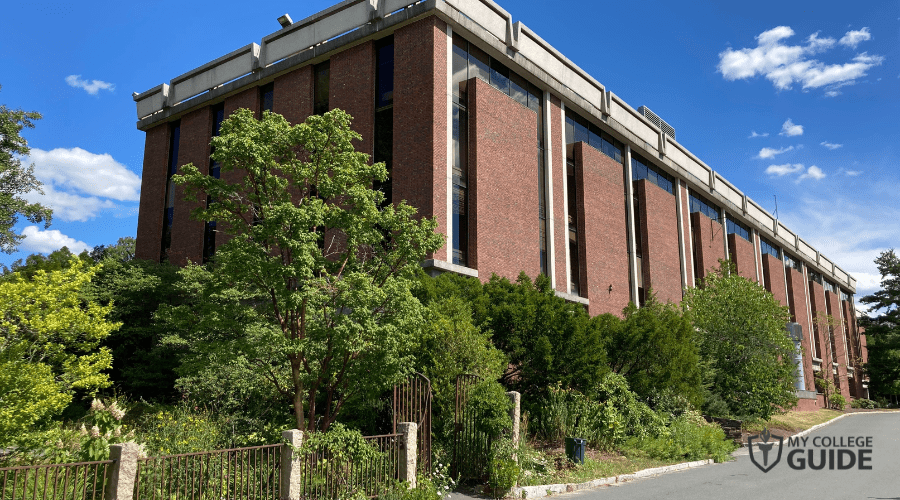
As you search for colleges with free tuition, accreditation is something to keep in mind. The accreditation status of a program or college establishes credibility.
When a college or university is accredited, it is a sign that its programs are meeting quality educational standards. Accreditation can affect future opportunities. Some graduate-level programs take accreditation into consideration when determining admission. Employers might prefer candidates who earned a degree or certificate from an accredited institution.
Editorial Listing ShortCode:
You can check out a school’s accreditation status on the US Department of Education accreditation page.
Financial Aid and Scholarships
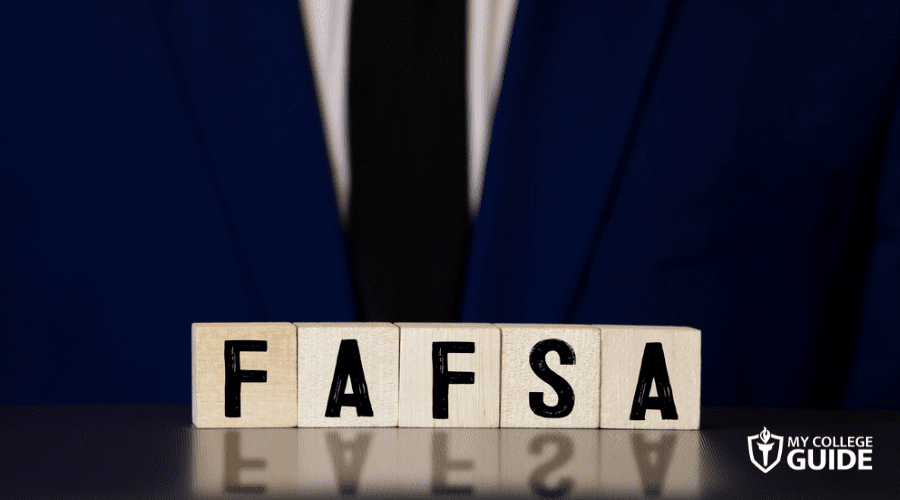
Financial aid and scholarships are a way to help students pay for their college tuition or other expenses. Scholarship programs may offer full rides to select students or give students monetary awards.
There are some scholarships that are targeted toward certain students, but you can apply for any scholarship you qualify for. The US Department of Education allows students to submit a Free Application for Federal Student Aid (FAFSA) to inquire about financial aid eligibility. A number of factors can affect whether a student is eligible.
If your cost of attendance (COA) is higher than your expected family contribution, then you may be eligible for financial aid. Scholarships and financial aid have the ability to pay for a large sum or all of a student’s tuition or college expenses.
Can Low-Income Students Afford College?
Yes, many low-income students can afford college. Although colleges give an estimated price for the cost of attendance, different types of financial assistance and colleges for low-income students to help bring this cost down.
These are a few steps you can take to help make college more affordable:
- Apply for financial aid
- Apply for colleges offering full rides to low-income students
- Apply for scholarships
- Attend community college
Some colleges offer to pay all of a student’s demonstrated financial need. If financial need is proven, a student can receive federal financial aid. This can help take care of the cost of tuition.
Students who apply for financial aid at a college that offers full rides to students with a low family income may be selected to attend college at no cost. Community colleges are another way to help students make college more affordable. You can typically complete your general education courses at a community college at a lower cost.
A number of scholarships can help pay for a selected student’s tuition and other attendance costs. You can apply for more than one scholarship at a time. Doing so can help increase your chances of receiving a monetary award that can make college more affordable.
How Much Does College Cost?

The cost of college varies between schools. Private colleges tend to be more expensive than public colleges or universities. Attending a college or university in-state versus out-of-state can also affect the cost of tuition.
In-state colleges and universities are typically less expensive. If you have your eyes on a school outside of your state, tuition will likely be more costly. On the lower end, attending college may only amount to a few thousand dollars. The average cost of college is usually above $20,000. This number can go up for out-of-state schools and even more for private college tuition.
When asking how much does it cost to go to college, tuition isn’t the only thing that should be considered. School supplies, textbooks, housing, student fees, and other expenses are also factored into the cost of attendance. Colleges usually give a rough estimate of how much it costs to attend, including tuition and other fees.
Are There Tuition-Free Online Colleges?
Yes, there are a number of online colleges with free tuition. As online college programs become more common, opportunities available to on-campus learners are also becoming available for online programs.
Editorial Listing ShortCode:
Online college programs can be a little cheaper depending on the school because they can cut out the cost of housing. You can still apply for scholarships to possibly pay for your online college tuition. Financial aid options might be available for accredited online colleges. Some online colleges offer students free tuition based on their family income.
What Does Free Tuition Mean?

At tuition-free colleges courses and credit hours are paid for by the college or university. Tuition costs don’t include other school expenses, such as room and board, meal plans, or student fees.
There might be other opportunities for students to cover leftover expenses. Securing grants or scholarships can help students pay remaining costs outside of tuition. Free tuition is still a large portion of college attendance costs. It can be really helpful for students unable to afford tuition and other expenses altogether.
Is a College Degree Worth it?
Yes, a college degree is worth it for many students. Earning a college degree can help provide students with the proper education and skills needed to enter their desired career fields.
Editorial Listing ShortCode:
The Bureau of Labor Statistics states that a degree is highly desired by employers for entering a number of career fields. It can give students the opportunity to explore their interests further and find a field of study they’re passionate about. Employers may find candidates who have a degree or certification more desirable.
Colleges Offering Free Tuition for Low Income Students
Methodology: The following school list is in alphabetical order. To be included, a college or university must be regionally accredited and offer degree programs online or in a hybrid format.

Alice Lloyd College offers tuition guarantees to residents of 108 counties in the central Appalachian area. These students get their tuition costs covered for up to ten semesters through a combination of grants, scholarships, and Alice Lloyd’s Student Work Program. Financial assistance is also available to cover the cost of room and board.
Alice Lloyd College is accredited by the Commission on Colleges of the Southern Association of Colleges and Schools.
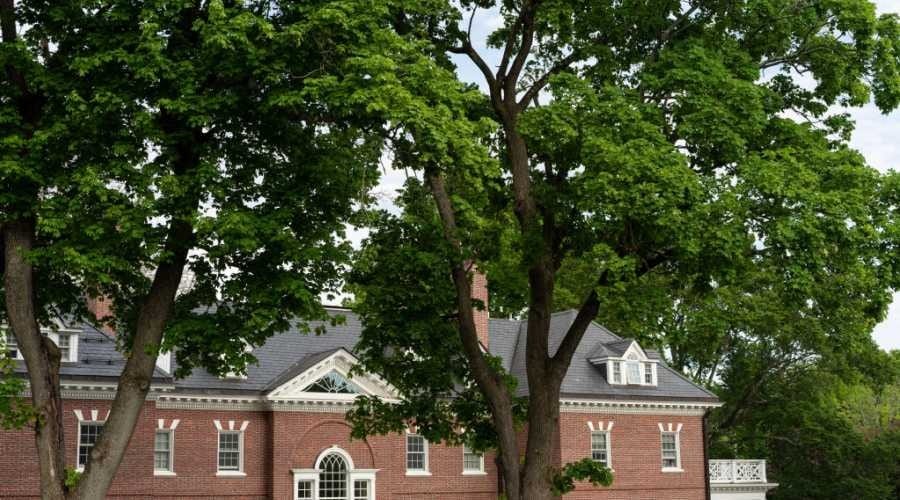
Amherst College provides need-blind admissions and offers generous financial aid packages. Amherst is committed to covering 100% of its students’ demonstrated financial need so they can graduate debt-free. Students may even receive financial aid to study abroad. Students who receive financial aid must reapply annually.
Amherst College is accredited by the New England Commission of Higher Education.

Barclay College provides a Full Tuition Scholarship for all students who live on campus. Smaller financial aid packages are also available for full-time students who live off campus. Barclay is a Christian school committed to ensuring that its graduates are not hindered by student debt in following God’s call for their lives.
Barclay College is accredited by the Higher Learning Commission.
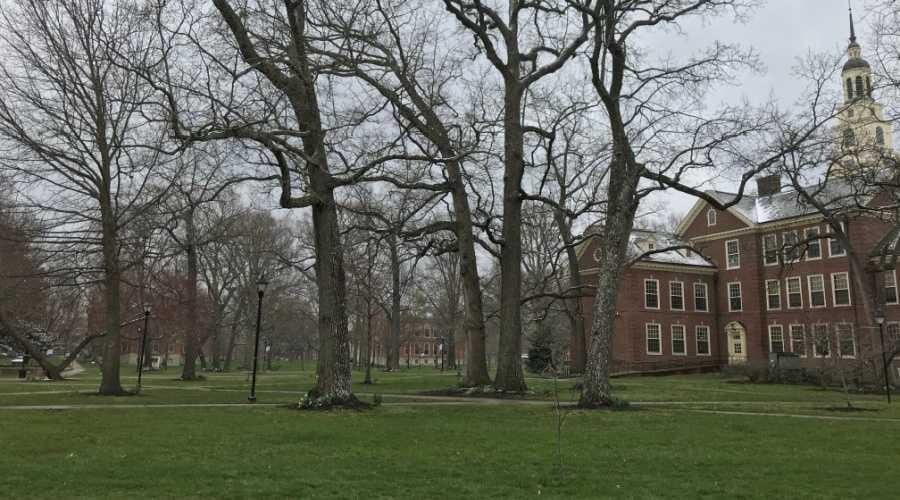
Berea College does not charge tuition but instead has the generous Tuition Promise Scholarship program and a work-study program open to every student on campus. Most students can graduate with little or no debt. Berea College has a long history of inclusivity, having been the first racially integrated college in the South.
Berea College is accredited by the Southern Association of Colleges and Schools Commission on Colleges.
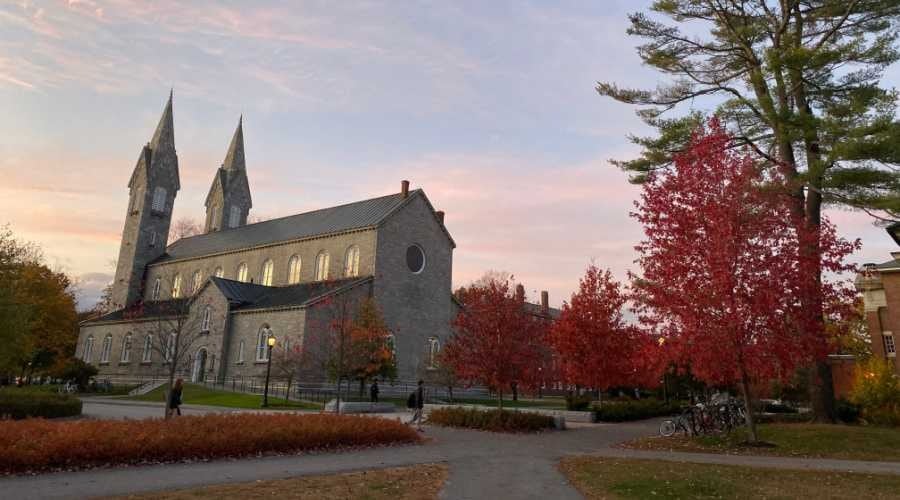
Bowdoin College’s need-based financial aid program includes grants, scholarships, and work-study jobs to help meet any family’s demonstrated need. Loans are not included in Bowdoin’s financial aid packages. Applying for financial aid does not impact the chances of admission. Accepted students may also purchase computers at discounted prices through Bowdoin’s IT department.
Bowdoin College is accredited by the New England Commission of Higher Education.
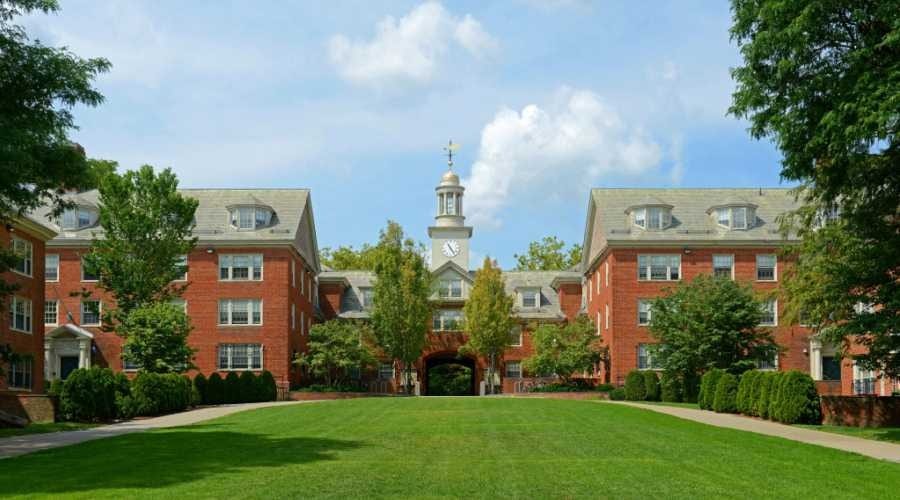
Brown University is committed to meeting every student’s demonstrated financial need without loans and making education affordable for everyone. In addition to scholarships for tuition, Brown has a Books and Course Materials Support Program. Admissions are need-blind, and Brown actively seeks students from all social backgrounds to help ensure a diverse community on campus.
Brown University is accredited by the New England Commission of Higher Education.

Claremont McKenna College helps meet its students’ financial needs through a combination of need-based grants, scholarships, and work-study programs. Loans are available but are kept minimal. All students are welcome to apply for financial aid, including undocumented students. Claremont McKenna’s admissions policy is need-blind, so a family’s ability to pay is not a barrier.
Claremont McKenna College is accredited by the WASC Senior College and University Commission.

The College of the Ozarks helps to ensure that its students can graduate debt-free by using a combination of institutional scholarships, federal and state grants, and work-study programs. Its on-campus work program requires a commitment of 15 hours most weeks, with two 40 hour work weeks required each school year.
College of the Ozarks is accredited by the Higher Learning Commission.

The College of William & Mary offers a variety of need-based financial aid options: grants, loans, and federal work-study. William & Mary is usually able to meet 100% of a student’s demonstrated financial need and has been working to increase grants and reduce loans. Students do need to reapply for financial aid each year.
The College of William & Mary is accredited by the Southern Association of Colleges and Schools’ Commission on Colleges.

Columbia University offers its students numerous forms of gift aid that do not need to be paid back. These include scholarships, grants, and fellowships. Columbia also has a Federal Work-Study program that helps students pay for school through part-time employment. Columbia’s goal is to remove financial barriers to attending college.
Columbia University is accredited by the Middle States Commission on Higher Education.

At Cooper Union, every admitted undergraduate student automatically receives a half-tuition scholarship. Further financial assistance is available in the form of merit scholarships and federal work-study, and all applicants are considered for financial aid. Students must be enrolled full-time and be first-time degree-seeking students to maintain scholarship eligibility.
The Cooper Union is accredited by the Middle States Commission on Higher Education.
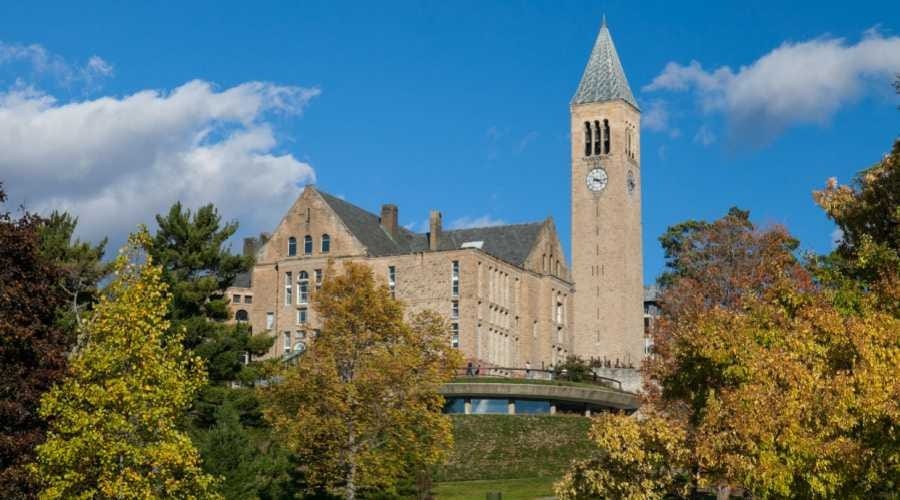
All of Cornell University’s financial aid packages are need-based rather than merit-based, and the financial aid office is committed to distributing funds fairly. Available forms of financial aid include grants, student employment opportunities, and loans. Students must apply for financial aid separately from applying for admission.
Cornell University is accredited by the Middle States Commission on Higher Education.

The Curtis Institute of Music works to ensure that its students graduate debt-free by providing full-tuition scholarships to all students. Curtis also makes some forms of need-based aid available to cover living expenses, which students must specifically apply for. These include grants and on-campus employment options.
The Curtis Institute of Music is accredited by the Middle States Commission on Higher Education.
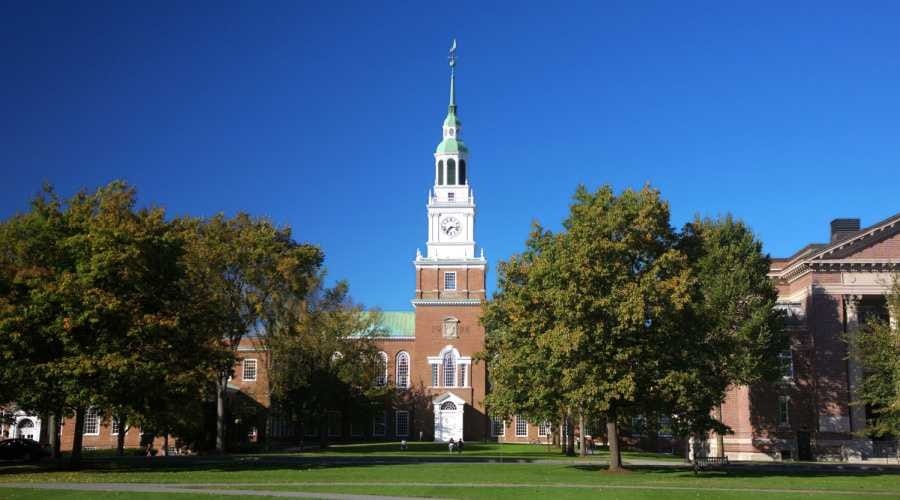
Dartmouth College is in the process of eliminating student loans from its financial aid packages. For families who earn less than $125,000 per year, it provides a scholarship that covers at least the cost of tuition. Dartmouth follows a need-blind admissions policy.
Dartmouth College is accredited by the New England Commission of Higher Education.

Davidson College has a program called the Davidson Trust. This program enables the college to meet 100% of its students’ calculated financial needs through a combination of grants and work-study. Davidson does not include student loans in its financial aid packages. About half of Davidson students receive need-based aid of some kind.
Davidson College is accredited by the Southern Association of Colleges and Schools Commission on Colleges.

Deep Springs College is a small liberal arts college located in eastern California. The college provides a full $50,000 scholarship to all accepted students, which covers the cost of tuition, room, and board. Deep Springs is test-optional and does not have any minimum GPA requirement.
Deep Springs College is accredited by the ACCJC of the Western Association of Schools and Colleges.

Duke University is dedicated to making college education accessible and affordable for all students. Duke covers 100% of its undergrads’ demonstrated financial need. Most of its students do not pay the full cost to attend. Financial aid can be used for summer classes and to study abroad.
Duke University is accredited by the Southern Association of Colleges and Schools Commission on Colleges.

At George Washington University, financial needs are re-evaluated each year based on students’ annual applications and met through a variety of means. GWU offers grants, scholarships, loans, work-study, and military education benefits. It is even possible to apply for emergency funding in case something unexpected affects a student’s financial situation.
George Washington University is accredited by the Middle States Association of Colleges and Schools.

Harvard University is expanding its financial aid programs. Harvard will cover the full cost of education for accepted students from families with annual incomes under $75,000. Most Harvard students receive need-based scholarships of some kind, and about 20% pay nothing to attend.
Harvard University is accredited by the New England Commission of Higher Education.

Haverford College has an annual financial aid budget of $30 million. Haverford meets the full demonstrated financial need for all its accepted students. Almost half of Haverford’s students receive college grants or financial aid of some kind. Haverford is test-optional and uses a holistic admissions process.
Haverford College is accredited by the Middle States Commission on Higher Education.
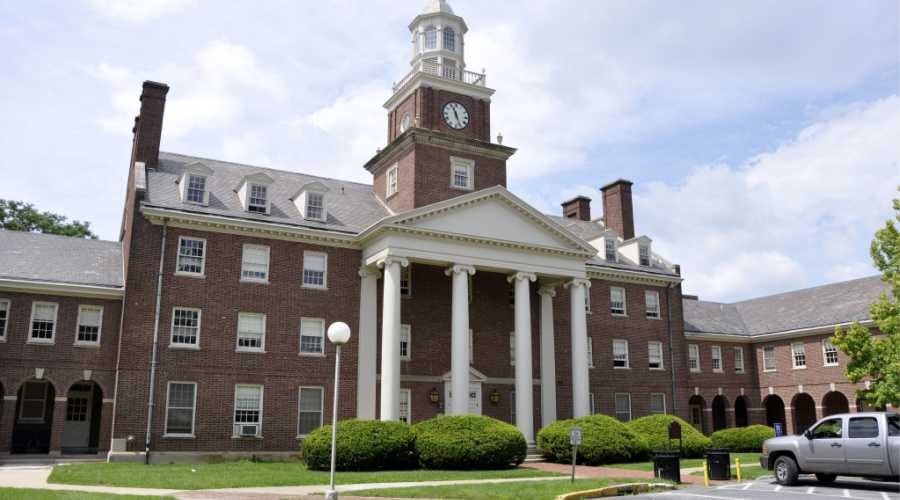
Lafayette College’s financial aid program consists primarily of full-tuition and half-tuition merit-based scholarships, for which all applicants are automatically considered. Students may also apply for additional need-based aid, and Lafayette is committed to meeting 100% of its students’ demonstrated financial need. Scholarships can typically be used for up to 4 years of full-time study.
Lafayette College is accredited by the Commission on Higher Education of the Middle States Association of Colleges and Schools.

Macaulay Honors College provides full-tuition scholarships to New York state students. Macaulay Scholars are also eligible to apply for an Opportunities Fund that can be used for experiential learning programs, such as study abroad, research, and internships. Macaulay Scholars also receive a Cultural Passport that provides free or reduced admission to various places throughout New York.
Macaulay Honors College is accredited by the Middle States Commission on Higher Education.
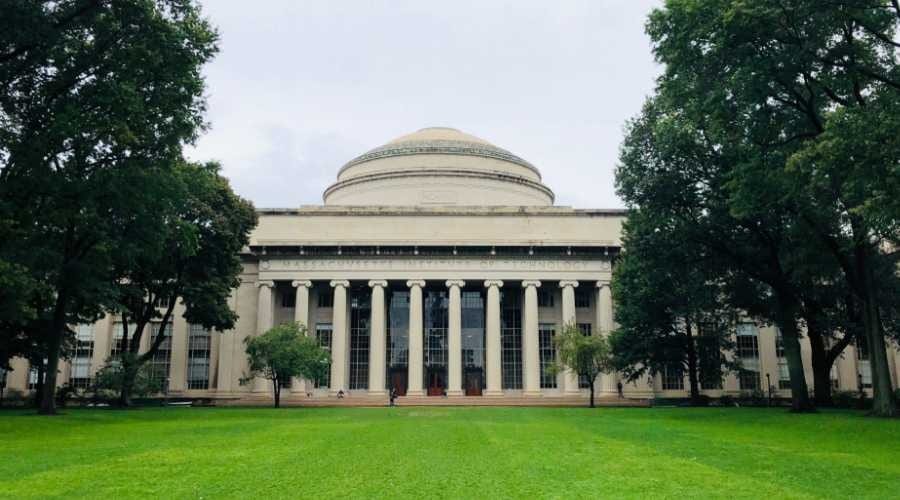
The Massachusetts Institute of Technology uses a need-blind admissions process. It is committed to meeting all students’ full financial needs for all 4 years of an undergraduate degree program. MIT’s financial aid packages include grants, scholarships, student employment, research opportunities, and occasionally loans.
Massachusetts Institute of T is accredited by the New England Association of Schools and Colleges.

Miami University offers numerous forms of financial aid, including scholarships, grants, loans, on-campus jobs, federal work-study, and benefits for military veterans. Over 90% of its students receive some form of aid that does not need to be paid back. Miami University has a special scholarship fund for students from the Miami Tribe of Oklahoma.
Miami University is accredited by the Higher Learning Commission.
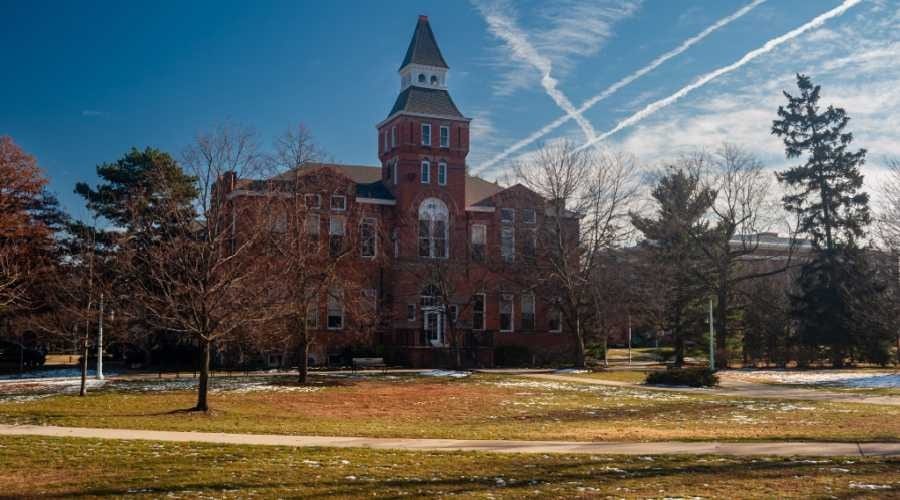
Michigan State University has the Spartan Advantage Program to help Michigan’s neediest students with the costs of college. Students in the program receive a combination of grants, scholarships, and work-study to cover the cost of tuition, books, and room and board. The goal of the program is to help reduce student loan debt.
Michigan State University is accredited by the Higher Learning Commission.

Olin College of Engineering is dedicated to meeting all 100% of its students’ demonstrated financial need. Almost half of Olin’s students receive some form of need-based financial assistance. All admitted students also automatically receive the Olin Tuition Scholarship, a merit-based, half-tuition scholarship that can be used for up to 8 semesters of study.
Olin College of Engineering is accredited by the New England Commission of Higher Education.
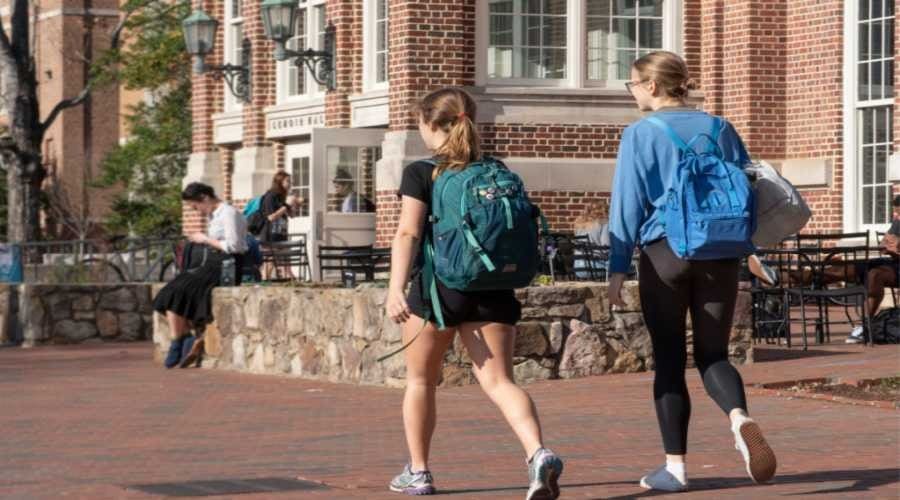
Princeton University uses a need-blind admissions process and is committed to meeting 100% of each student’s demonstrated need. Students from families with an annual income under $65,000 usually qualify for a grant that covers the full cost of tuition, room, and board, and most Princeton students graduate debt-free.
Princeton University is accredited by the Middle States Commission on Higher Education.
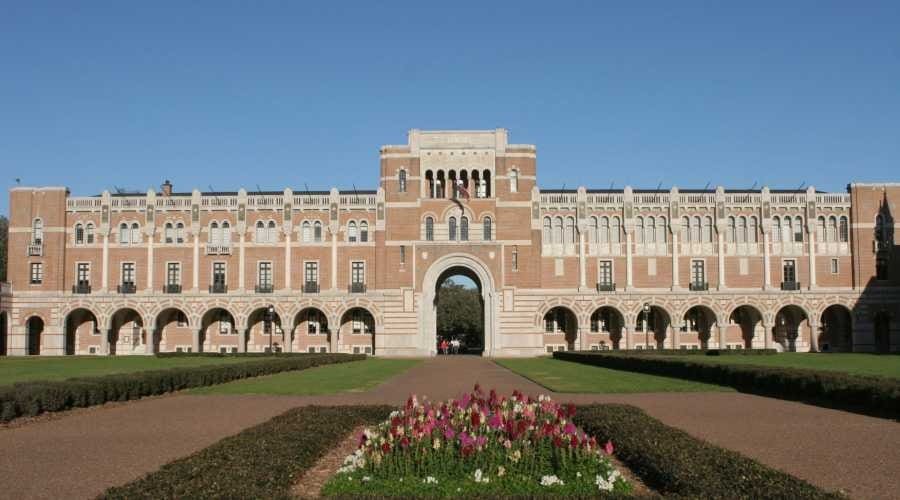
Students whose families have a total annual income under $75,000 may qualify for a grant from Rice University to cover the full cost of tuition, fees, room, and board. If their family’s annual income is between $75,000 and $140,000, they may qualify for a full-tuition grant.
Rice University is accredited by the Southern Association of Colleges and Schools Commission on Colleges.

Sacred Heart University has a strong commitment to financial aid and to helping its students achieve their educational goals. Sacred Heart offers a variety of merit-based and need-based grants and scholarships. To qualify for need-based aid at Sacred Heart, students must fill out the FAFSA annually.
Sacred Heart University is accredited by the New England Commission of Higher Education.

Soka University strives to make education accessible to all its accepted students. Soka provides full-tuition scholarships to students from families with annual incomes below $60,000. Soka also has a variety of other need-based and merit-based scholarships, as well as work-study programs.
Soka University of America is accredited by the WASC Senior College and University Commission.

Stanford University uses a student’s CSS Profile to determine financial need. It then provides scholarships to cover any financial needs that are not already met by federal or state funding. Stanford does not expect its students to take out loans to cover the cost of attending college.
Stanford University is accredited by the Western Association of Schools and Colleges Senior College and University Commission.
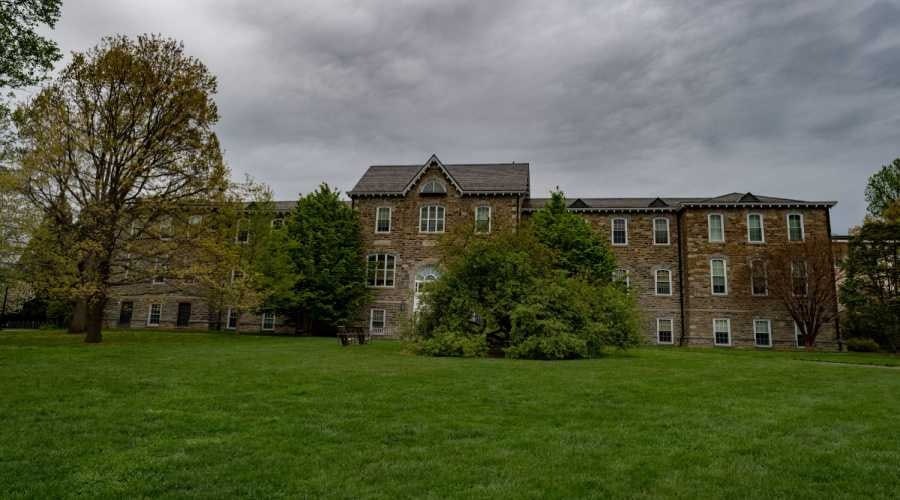
Swarthmore College is dedicated to ensuring that its education is affordable and that its student body comes from a diverse range of backgrounds. Swarthmore meets 100% of its students’ determined financial need, often covering the full cost of tuition, fees, and room and board. Swarthmore uses a need-blind admissions process.
Swarthmore College is accredited by the Middle States Commission on Higher Education.

Through its Aggie Assurance program, Texas A&M University covers the full cost of tuition for students from families with an annual income below $60,000. The cost is met through grants and scholarships that do not need to be repaid. Students must be Texas residents to qualify.
Texas A&M University is accredited by the Southern Association of Colleges and Schools Commission on Colleges.

More than half of degree-seeking Texas Tech University students receive grants or scholarships to help cover the cost of attending school. Texas Tech offers a variety of need-based and merit-based scholarships. Students can even apply for special circumstances assistance if their financial situations change abruptly.
Texas Tech University is accredited by the Southern Association of Colleges and Schools Commission on Colleges.

At the United States Air Force Academy, cadets never need to take out loans to pay for their education. The Academy covers the full cost of tuition for all cadets, as well as room and board and medical and dental insurance. Graduates are commissioned as officers in the US Air Force and Space Force.
The United States Air Force Academy is accredited by the Higher Learning Commission.

At the United States Coast Guard Academy, each student’s education is fully funded by the government, including the cost of tuition, room, and board. Students graduate with no debt, and the school has a 100% job placement, with graduates serving in the Coast Guard for at least 5 years after graduation.
The United States Coast Guard Academy is accredited by the New England Commission of Higher Education.

Midshipmen can attend the United States Merchant Marine Academy at no cost. They receive tuition, uniforms, room and board, and books. The USMMA is committed to diversity and provides small class sizes. Graduates are qualified to serve in any branch of the US Armed Forces.
The United States Merchant Marine Academy is accredited by the Middle States Commission on Higher Education.
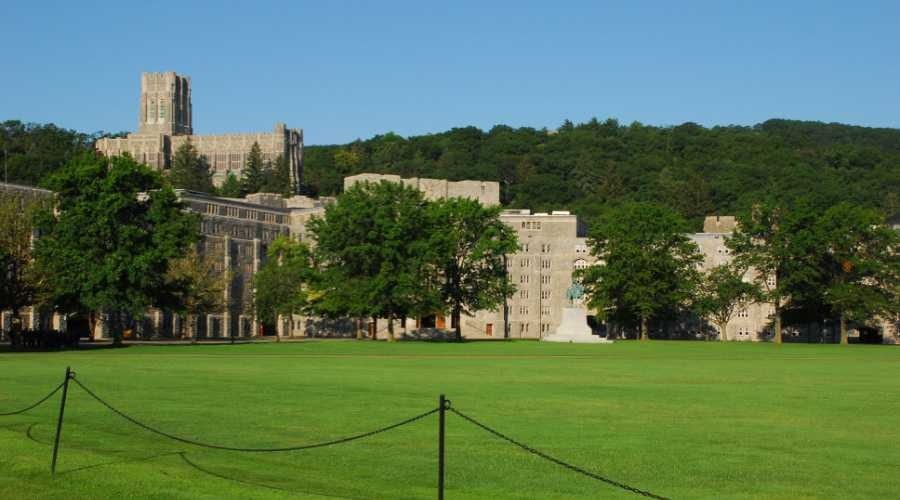
The United States Military Academy—West Point provides a fully funded education to each of its admitted students. Costs are covered for both tuition and room and board, and students even receive medical and dental insurance and a monthly stipend. Graduates often go on to serve as officers in the US Army.
The United States Military Academy at West Point is accredited by the Middle States Commission on Higher Education.

The United States Naval Academy provides a full scholarship to every student, covering the full cost of tuition, room and board, and even medical and dental care costs. Students can choose from 26 academic majors, and graduates are prepared to serve as officers in either the United States Navy or the Marine Corps.
The United States Naval Academy is accredited by the Middle States Commission on Higher Education.
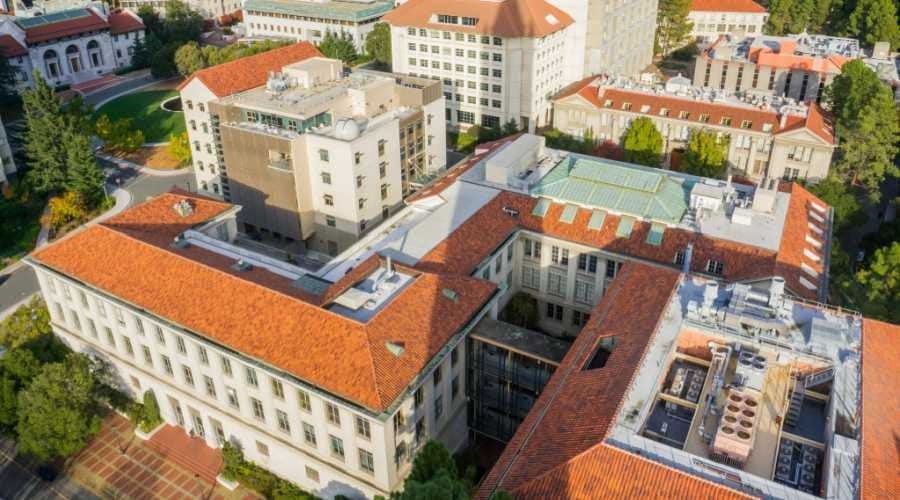
The University of California provides scholarships and grants to cover the cost of tuition for students whose families have an annual income below $80,000. If needed, students can apply for further assistance to cover the cost of books, housing, and other educational expenses. Students may receive assistance for up to 4 years.
The University of California is accredited by the WASC Senior College and University Commission.
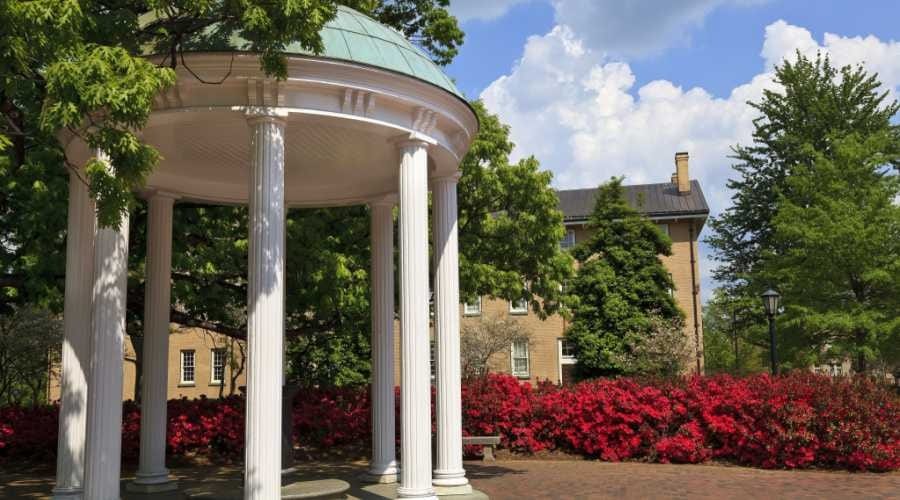
The University of North Carolina—Chapel Hill is committed to making education affordable, with nearly half of its students receiving some form of financial aid. Through the Carolina Covenant program, UNC-Chapel Hill covers the full cost of attendance for students whose total family income is at or below 200% of the poverty guideline.
The University of North Carolina at Chapel Hill is accredited by the Southern Association of Colleges and Schools Commission on Colleges.
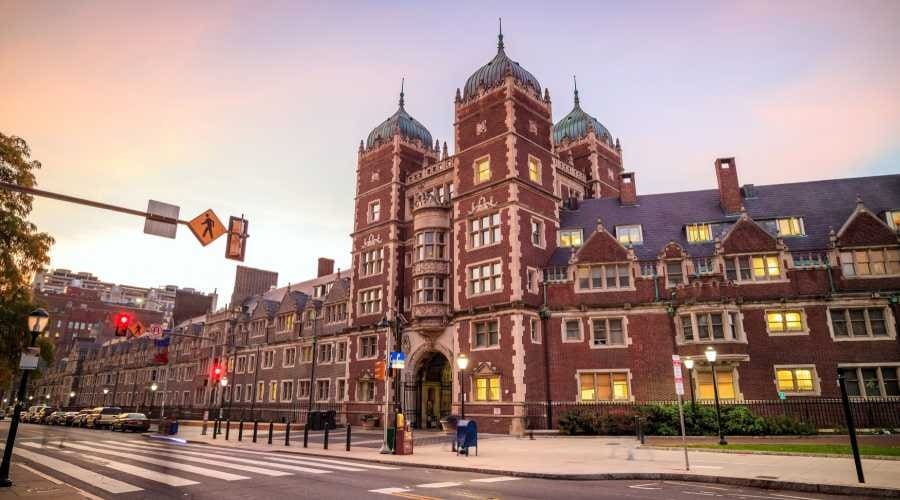
The University of Pennsylvania has a generous financial aid budget to ensure that students from a wide range of backgrounds can attend and graduate debt-free. UPenn is committed to meeting 100% of each student’s demonstrated financial need through a combination of grants and work-study.
The University of Pennsylvania is accredited by the Middle States Commission on Higher Education.
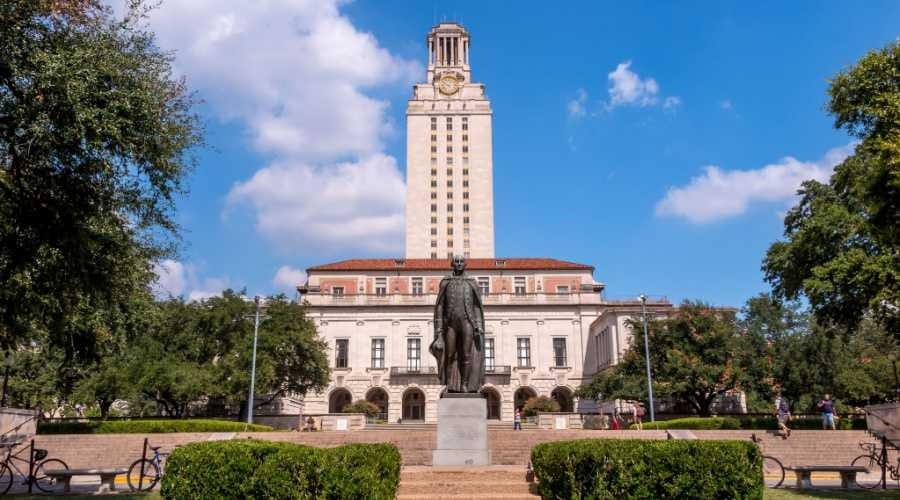
The University of Texas offers the Opportunity Scholarship program to help remove barriers to education for economically disadvantaged students. Students in the program can not only receive scholarships but peer and alumni mentorship and assistance with their job search as graduation approaches.
The University of Texas is accredited by the Southern Association of Colleges and Schools, Commission on Colleges.
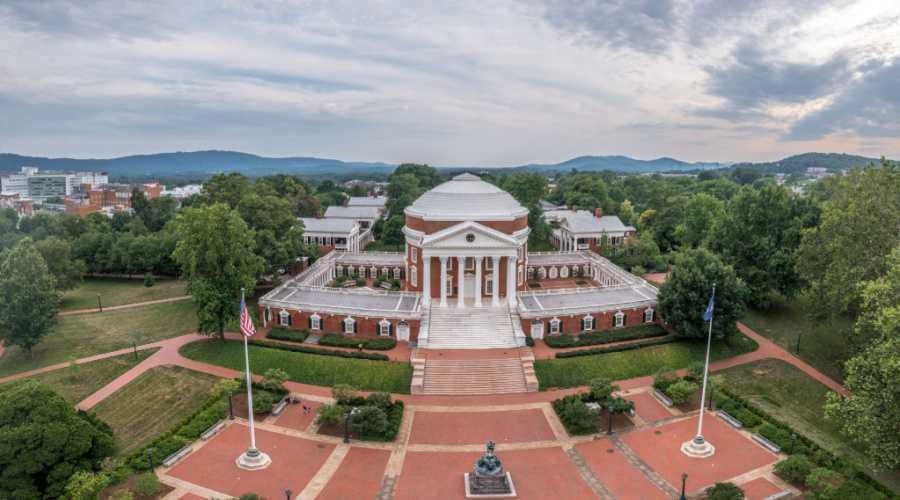
The University of Virginia meets 100% of each student’s demonstrated financial need, with about 35% of its students receiving need-based financial aid. Financial aid packages may include scholarships, grants, work-study, and loans, but UVA is working to limit its use of loans to help students graduate with less debt.
The University of Virginia is accredited by the Southern Association of Colleges and Schools Commission on Colleges.

The University of Washington welcomes students from all economic backgrounds to attend. Washington offers scholarships, grants, loans, and work-study options to help cover the cost of tuition. Students can make appointments with the financial aid office at any time to discuss changes in their income or ability to pay.
The University of Washington is accredited by the Northwest Commission on Colleges and Universities.

Vassar College meets 100% of its domestic and international students’ demonstrated financial needs. Vassar is committed to making its education affordable and accessible to everyone and is currently working to eliminate loans from financial aid packages for low-income students. Admissions processes at Vassar are need-blind.
Vassar College is accredited by the Middle States Commission on Higher Education.

Washington & Lee University is committed to meeting 100% of its students’ demonstrated financial need through a combination of grants, scholarships, and on-campus employment. Students are never asked to take on debt to pay for their education. Most students receive need-based aid of some kind, and the school also offers a generous merit scholarship program.
Washington & Lee University is accredited by the Southern Association of Colleges and Schools Commission on Colleges.

Washington State University seeks to make it possible to cover the cost of tuition through scholarships and working on campus. WSU can even provide financial aid to undocumented students. Students must fill out the FAFSA, or the WASFA for undocumented students, each year to qualify for need-based financial aid.
Washington State University is accredited by the Northwest Commission on Colleges and Universities.

Webb Institute provides a full-tuition scholarship to every accepted student that is a US citizen or Permanent Resident. Additional need-based aid is available to cover other costs of attending school, which all students are considered for upon filling out the FAFSA. Webb also has merit scholarships available.
Webb Institute is accredited by the Middle States Commission on Higher Education.
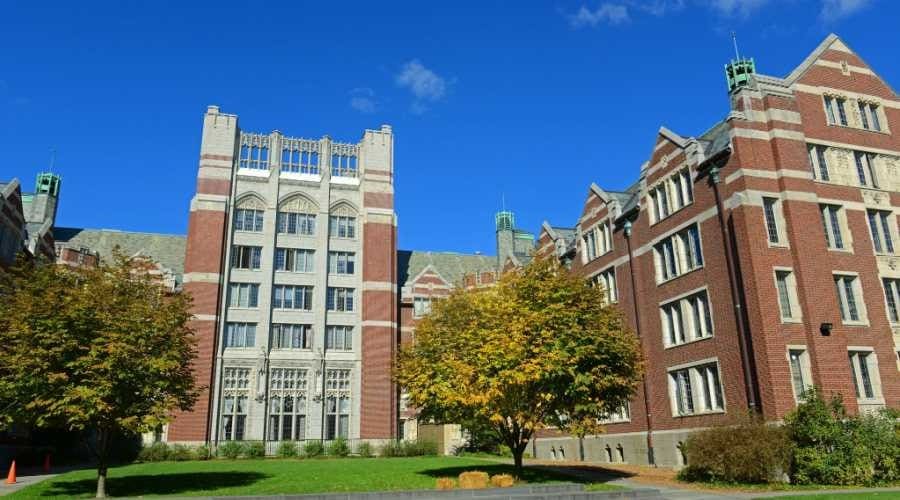
Wellesley College partners with the nonprofit organization QuestBridge to provide educational and scholarship opportunities to motivated students from low-income families.
Wellesly also participates in the Mastercard Foundation Scholars program to provide students with scholarships and ongoing support. Through these programs, Wellesley can provide eligible students with full-tuition scholarships.
Wellesley College is accredited by the New England Commission of Higher Education.
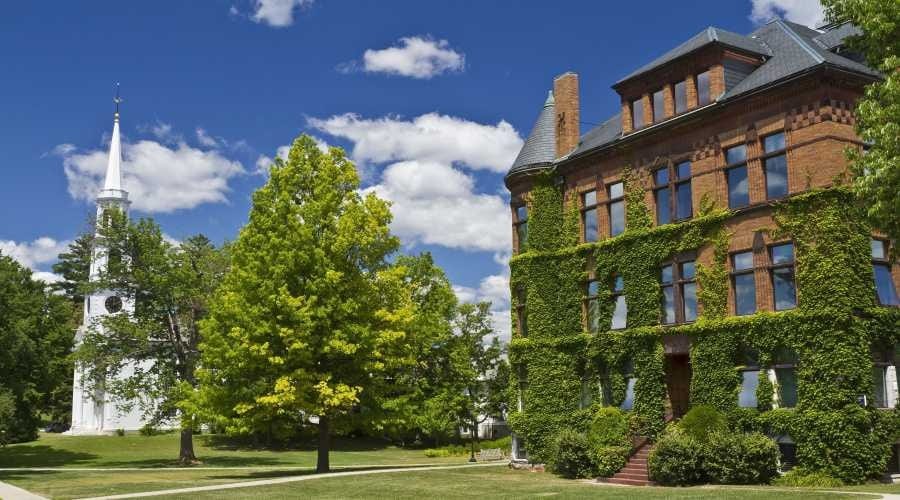
Williams College has a generous all-grant financial aid program that can help students earn a degree without taking on student debt or a campus job. Student employment opportunities are still available but are always optional. Williams also offers financial aid to help cover the costs of textbooks, health insurance, travel, and internships.
Williams College is accredited by the New England Commission of Higher Education.

At Yale University, all financial aid is need-based. Yale strives to make its educational programs accessible to students from all backgrounds and is committed to meeting 100% of its students’ demonstrated financial needs without loans. The admissions process at Yale is completely need-blind to help ensure a diverse student body.
Yale University is accredited by the New England Commission of Higher Education.
Getting Your College Degree Online

Thinking about the price of college can be overwhelming, but there are many financial opportunities that can help you pay for college.
You may receive financial aid, scholarships, or attend an online college that awards select students with free tuition or full rides. Exploring online accredited colleges or universities and finding out what programs fit your interests is a good place to start.
Once you narrow down your list of prospective schools, you can check out each school’s opportunities and ways that they help students pay for tuition and other fees.
